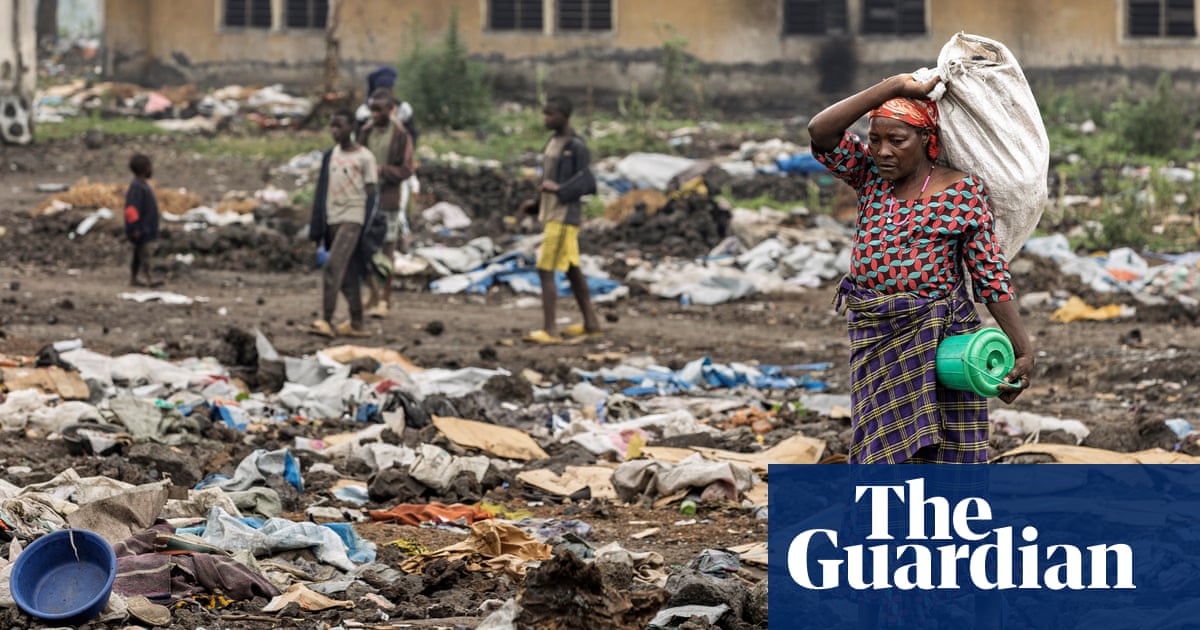
“This beach used to be full of life,” says Henry Franc, the owner of Space Tavern, as he walks along Alpha Beach in Lagos on a rainy morning, indicating dozens of collapsed homes and shops. “All these stores belonged to people.” He gestures to a ruined structure – the entirety of the second half of the building is destroyed but you can still see the roof and what were once the window panes sticking out of the sand. “That was a church.”
When Franc, 33, first set up the simple wooden beach hut that is Space Tavern five years ago, the shore was a good distance away. Today, Space Tavern is just a few feet from the lapping waves. Soon his tavern might be gone, too.
What is The Rising Ocean series?
ShowIt started slowly but is surely picking up speed: the ocean, long considered so big it couldn't be affected by humanity, is creeping toward us. As the water warms and the ice sheets melt, sea level has risen more than half a foot in the last century – and even if we stopped producing greenhouse gases today, a very unlikely scenario, it will only keep coming. With 40% of the Earth's population living in coastal zones, the UN has warned that the accelerating pace of sea level rise threatens a "mass exodus".
What we do now matters. While stopping carbon emissions is the most important collective task, individuals around the world are fighting back against the rising waters in their own ingenious ways. As our islands vanish, our shorelines shrink and our cities flood, Guardian Seascape is telling the troubling but inspiring stories of how humanity is facing down The Rising Ocean.
Chris Michael, editor
“The water comes up now. A few days ago, the waves came all the way here,” he says, pointing at a spot where diners are eating at the tables.

Henry Franc is the owner of the Space Tavern
Located 15 minutes off Lekki-Epe, the major Lagos expressway, Alpha Beach in the community of Okun Alfa was, until recently, a popular destination for many Lagos residents – one of the cheaper and more accessible beaches for people in Nigeria’s booming capital looking to get away. Today, however, many of the businesses catering for tourists and beachgoers have been literally washed away, as Okun Alfa has seen shoreline erosion and ocean surges destroy everything from buildings to roads to electricity poles.

After torrential storms the roads frequently get flooded
Three times in the past 15 years flood waters have destroyed many of the community’s structures. Each time the community rebuilds. Many now call this the city’s “fourth incarnation” – and they expect a fourth flood, too. The municipality’s low-lying elevation – it is just 15 metres above sea level on average – makes it particularly vulnerable, and residents say they aren’t sure how much longer Okun Alfa itself will exist.
‘‘These houses all fell down because of the water,” says Kunle Qudus Ose, 35, who was born and raised in Okun Alfa. ‘‘The floods will come and come – and then, one morning, we’ll wake up and it has fallen.’’

Kunle Qudus Ose was born and raised in the Okun Alfa community
He indicates the ruins of another church – you can still see the banner showing times and days of services – and all that is left is the roof. Beside it, a newer building is half submerged by sand, which nearly reaches the windows.
“There was a big hotel here. It extended all the way here – this was the gate,” says Prince Idukobaje, who moved to Okun Alfa a few years ago. “As time goes on, water keeps chasing people away. This community is the fourth generation.”
With a sense of despair setting in, last year the residents decided to bring in the services of Yeye Asimolowo Ganiyat, a priestess of the Yoruba deity Osun. She and the community have agreed to conduct a weekly procession through the town with a cow, ending at the ocean, where the animal is sacrificed.

Yeye Asimolowo Ganiyat, religious leader

Mrs Tony Moses, who was born and raised here
“They didn’t used to worship the water,” Ganiyat says. “The water was killing people and destroying the community. The water has told them to worship it but they were not. Now we worship it, with cow and ram, so it will stop coming outside.”
The turn to religion is perhaps not surprising given that the people here have spent decades badgering government officials to address the threat of the rising sea, to no avail. Time after time, government hopefuls use the crisis as a way to gain votes – and then do nothing.

Dunes are created by the locals to help protect the village
“Twenty years ago, all here was bush. But now, that is where we now have to live – our bush,” says Mrs Tony Moses, a resident. “During the election they’ll come here and ask us what we want. But then after it they’ll go – and that’s it.”
“Government officials have come and promised, but yet look at us: the community is still suffering,” agrees Yusuf Amuda, the local Baale or traditional hereditary chief. He has spent most of his tenure lobbying government officials to come to the aid of his small community.

Brother Kehinde, near the church built on the beach
In their absence, as the community rebuilds, their faith in survival isn’t as strong as it might once have been. Asked if he is hopeful about the new houses and buildings still being here in a decade’s time, Qudus says: “Nah, 50/50. They may fall, they may not.”

A shrine built to help with ‘calming the waters’










 English (US)
English (US)